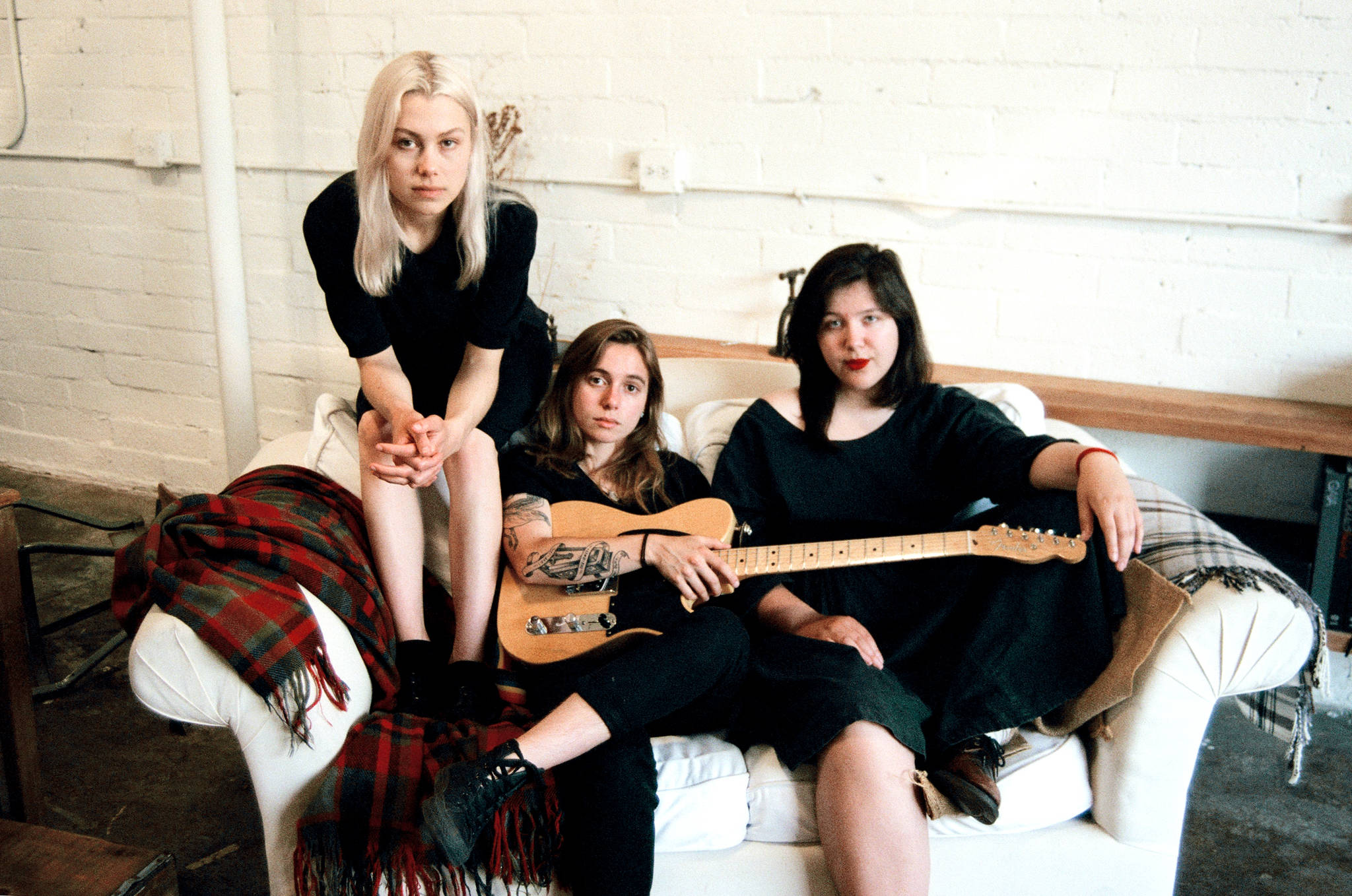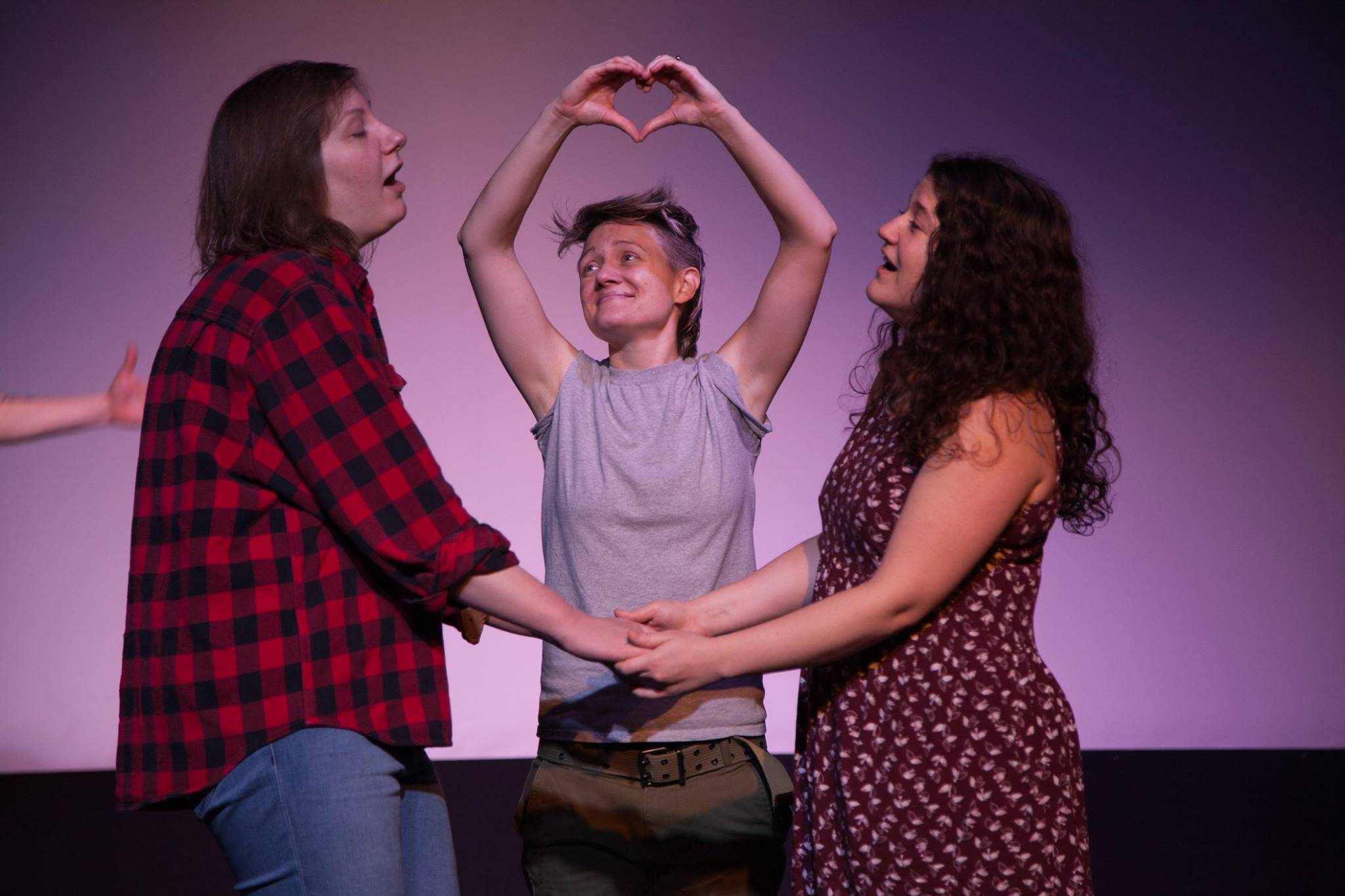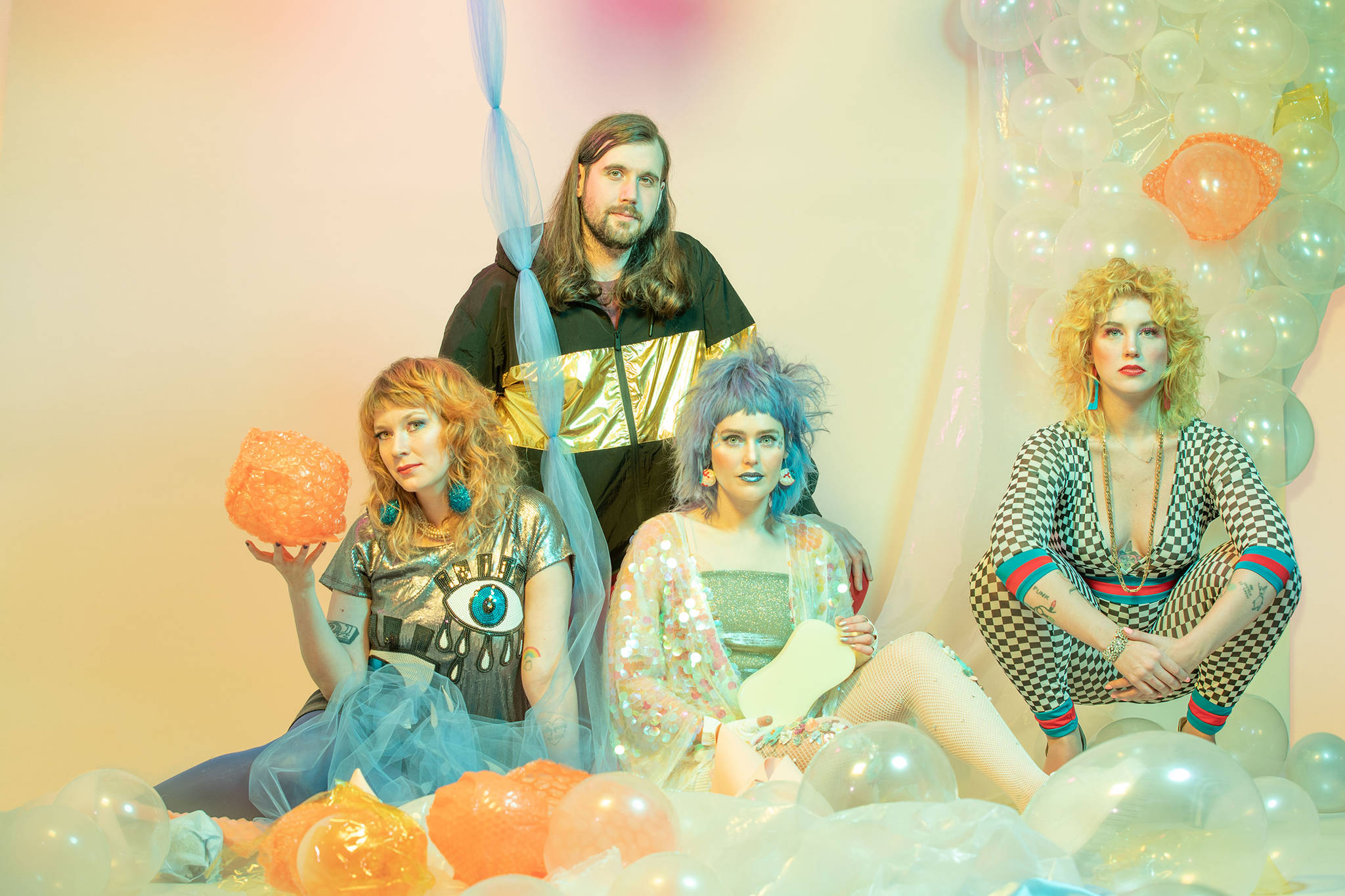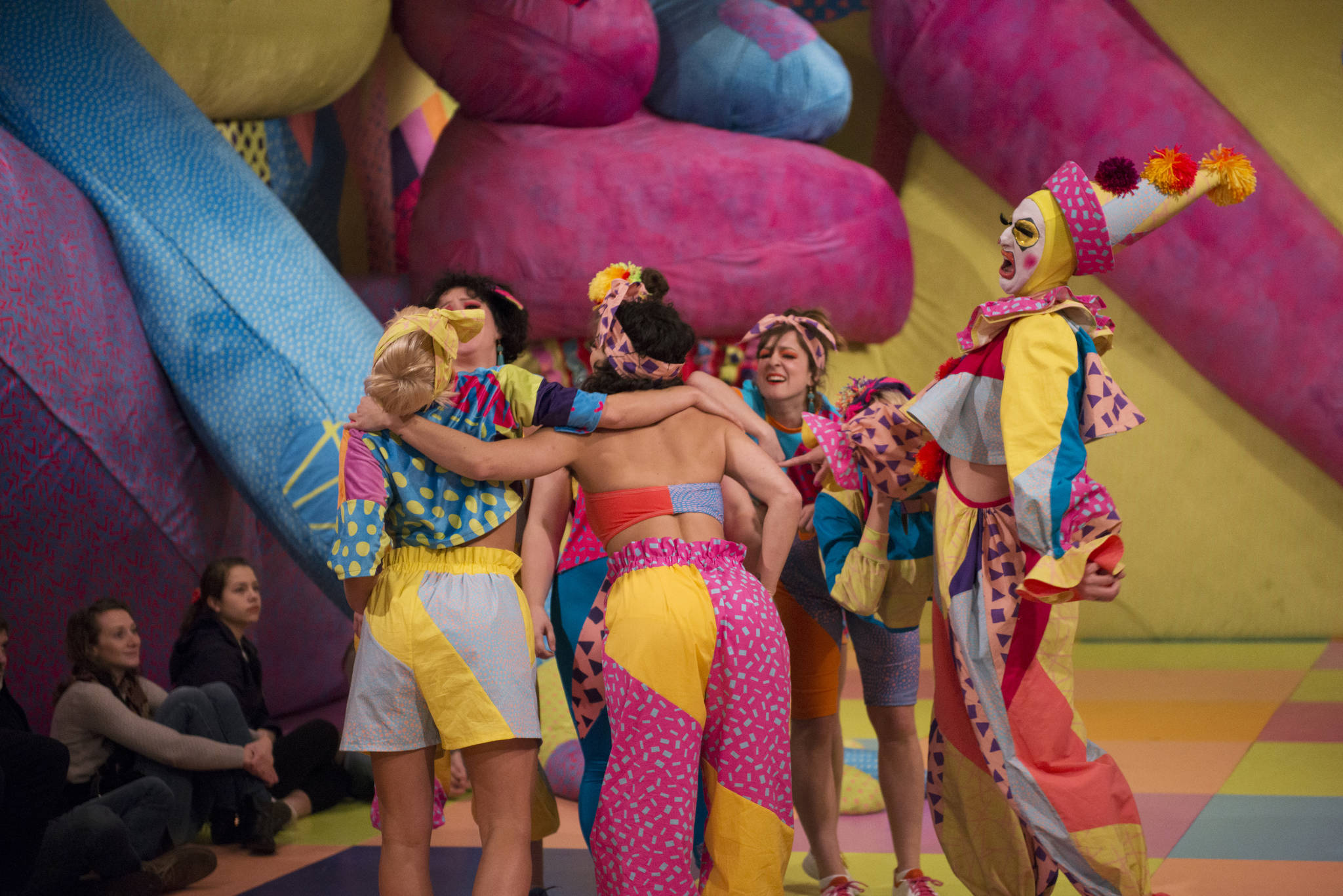Earth! Baker! Bridgers! Dacus! Heart! By your powers combined, I am Captain Sadness (aka Boygenius)! ♫ “Captain Sadness she’s a hero, gonna take your sorrow way past zero!” ♫
Julien Baker has nearly perfected the art of writing bummer tunes on her her first two solo albums, Sprained Ankle and Turn Out the Lights. With minimal arrangements of her guitar or piano, her piercingly powerful and emotive voice lifts the crushing sentiments of her poetic songwriting in a way that could bring the most hardened heart to tears. If anyone is her sad-girl singer/songwriter equal, it’s Phoebe Bridgers. Her 2017 debut LP, Stranger in the Alps, has a bit more of a playful streak, but still feels comfortable trying to drown itself in its own tears. Together the reigning queens of melancholia have teamed with the Lucy Dacus—who boasts a rich, deeper voice and the acclaimed 2018 album, Historian—to form the indie supergroup Boygenius, which released a self-titled six-song EP earlier this month.
It’s a stunning ease with which the three singers blend together on the Boygenius EP. It doesn’t sound like a thrown-together project among friends, but more like a veteran folk-rock act turning out another stellar release. While Baker, Bridgers, and Dacus take turns leading tracks, the other two deliver rich backing vocals that elegantly elevate each tune. This division only makes it sweeter when they all come together to split verses on the soft-swaying album closer, “Ketchum, ID.” If Boygenius is our generation’s Traveling Wilburys, we may have got the better end of that deal (and if for some reason they wanted to match the Wilburys’ five members, Sharon Van Etten and Katie Crutchfield are just a phone call away).
The trio’s fall tour—which features sets by each and a group Boygenius performance—stops at The Moore on Saturday, Nov. 24. Before they head to town, we had a chance to chat with Baker about the formation of Boygenius, sing-alongs, and what music she considers happy.
What led y’all to collaborate and form Boygenius?
Honestly, this tour was booked first. And we were all so excited to play with each other. I had played with Lucy, and I had played with Phoebe, and we wanted to find some way to collaborate. It was unclear whether it was gonna be just live or we were going to do a cover. And as we were talking about it, it just sort of snowballed into us getting together and writing as many songs as we could.
How do you approach the collaborative process since you’re primarily a solo artist?
To have a successful collaboration, you have to be willing to turn over some of the control that you have with the song. I think it’s mostly about opening myself to spontaneity or to being surprised, and sort of erasing foregone conceptions of what the song should be or must be. Just allowing it to take shape in a very organic way, and being pleased with whatever comes of it.
What are your favorite aspects of Phoebe and Lucy’s music?
Both of them have voices that are really unique; just stylistically, the way that they sing is unlike any other artists. Lucy’s voice is very timeless and almost classic; it could be from any era. Phoebe’s voice has the ability to be so powerful, but also so crystalline and delicate. She controls that very well and emotes with her voice. The timbre of her voice reflects what’s happening in the narrative of the song, and I think that’s a very amazing, innate quality. And, of course, both of them are just insane lyricists. I love the poetry of their songs so much. They make very astute observations and are able to discuss big concepts in a very intimate and forthright way.
It tends to be the case that as musicians become more successful, they’re pressured to expand their sound. Do you want to keep things fairly minimalist with mostly just you and a guitar or piano ,or are we going to be hearing a big chamber pop Julien Baker album with a million different instruments down the line?
I don’t know if there will be a chamber pop album. I definitely want to experiment with some different arrangements of things. I think that it would be a limited decision to just continue doing the same thing over and over again because it is safe and because it has worked previously. I think experimenting could be good. There will probably be a lot more percussion on the next record. I would like to think that the songs will retain their value in whatever iteration they appear. My main goal is crafting a song that will stand up in whatever arrangement, and usually that’s meant that the songs will stand up on their own without a bunch of embellishment. But I think it would be neat to see how they take form in that way.
I’ve seen you play in front of crowds at The Vera Project where there was an amazing hear-a-pin-drop level of respectful silence when you were performing. and ones like the last show at The Neptune that had more of a sing-along vibe. Do you have a preference between the two?
Oh, I so much prefer when people sing. I understand why people don’t sing, and I never used to ask people to sing. Now I do. Now sometimes I’ll say like, “If you know the words you should definitely sing along with me.” Because maybe making that clear opens the door for people. I understand sometimes people don’t want to interrupt a silence, or they feel self-conscious, or they feel like it’s not the right mood or right time.
But I actually love when people sing, because it feels less like a show dedicated to me—and putting me on a pedestal—and more like allowing me to be an arbiter of bringing a feeling into a room and letting a crowd share that.
Do you feel at all limited—either internally or externally—by your reputation as a sorrowful songwriter? Like would you feel comfortable writing a legitimately happy song ,or does that just not interest you? ’Cause right now “happy” Julien Baker songs are like I guess I’m worthwhile enough that I’ll start wearing a seatbelt so I don’t die in a horrific car crash. Yay!
I don’t feel constrained to not write songs about happy things, I just think that the songs that I consider happy or hopeful just contain a realistic element of trepidation or cynicism. Maybe that’s just the dint of my personality. That’s the way that I express lasting and salient joy—understanding that it won’t be perfect.
“Rejoice” is a happy song to me, ultimately. “Appointments” is a happy song to me. I don’t lack perspective so much that I think that they sound that way. I understand how they come off as pretty dismal. But just framing hope in that way maybe makes it harder to have a characteristically happy song.
Julien Baker, Phoebe Bridgers, and Lucy Davis
Saturday, November 24 at 7:15 p.m. | The Moore |$26 | stgpresents.org








